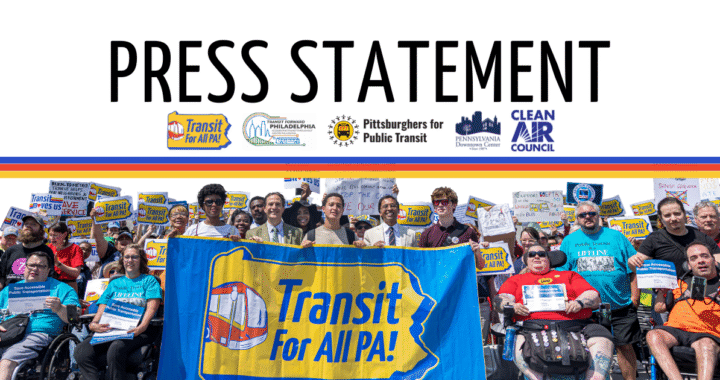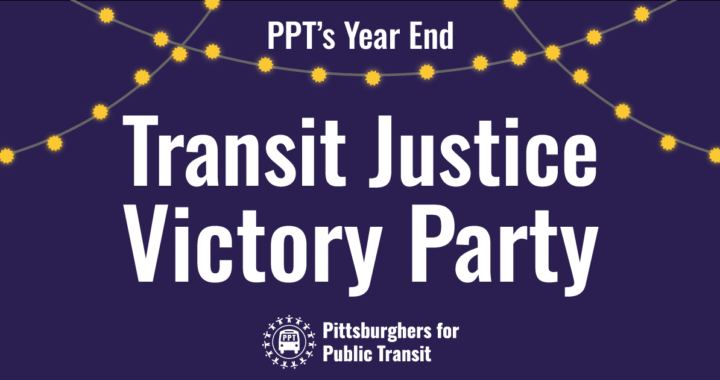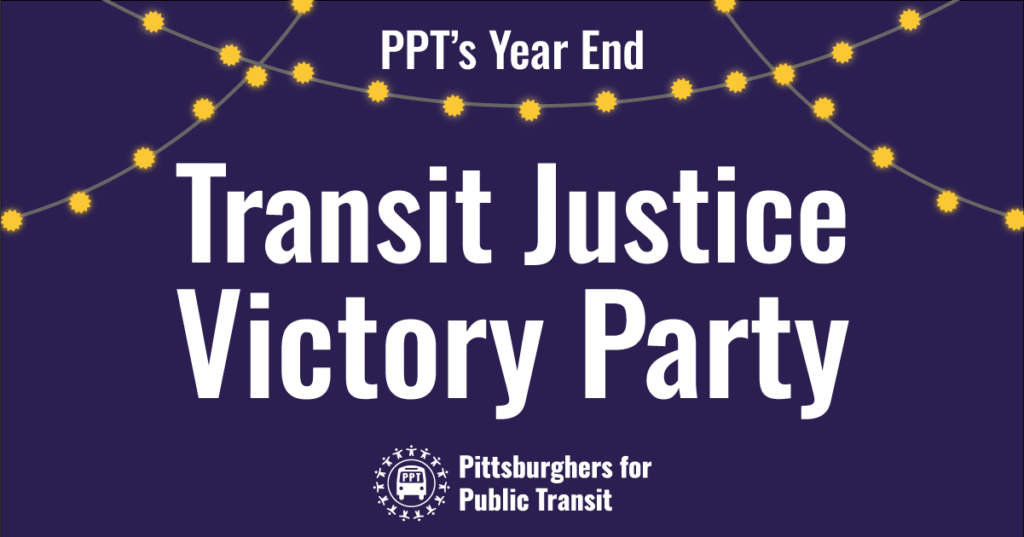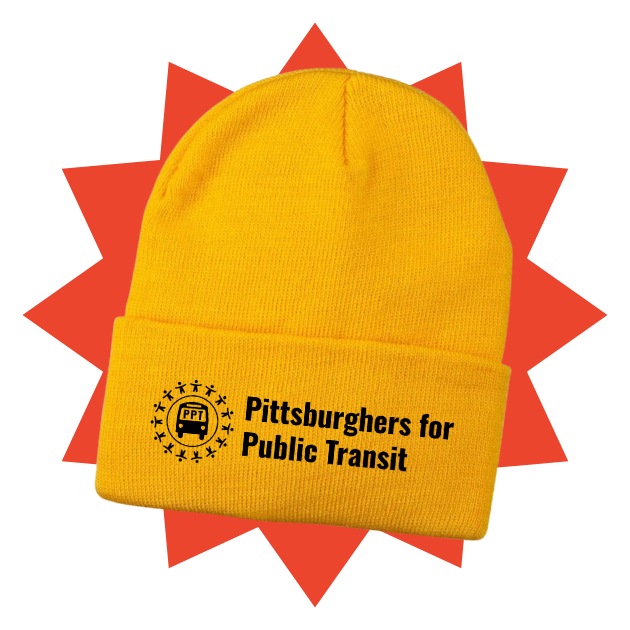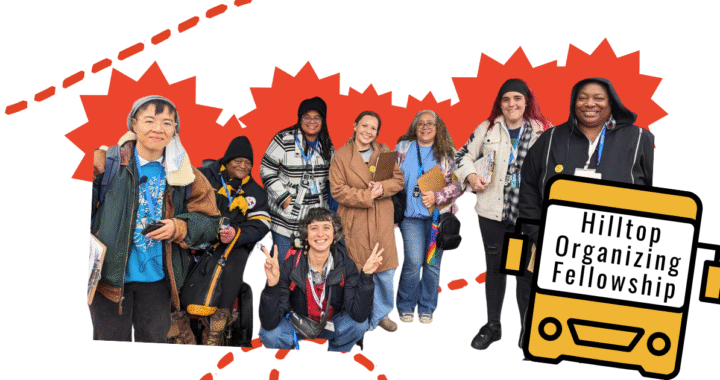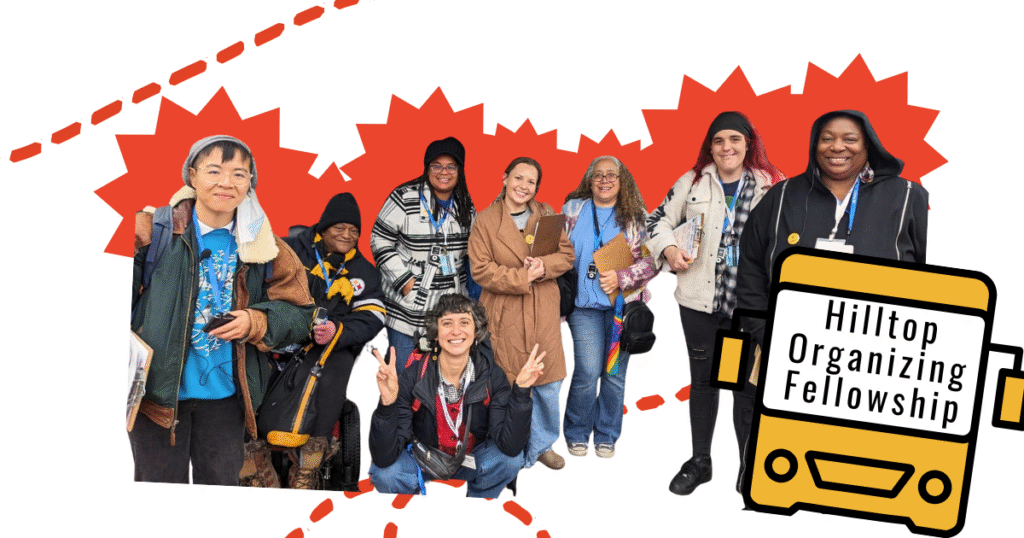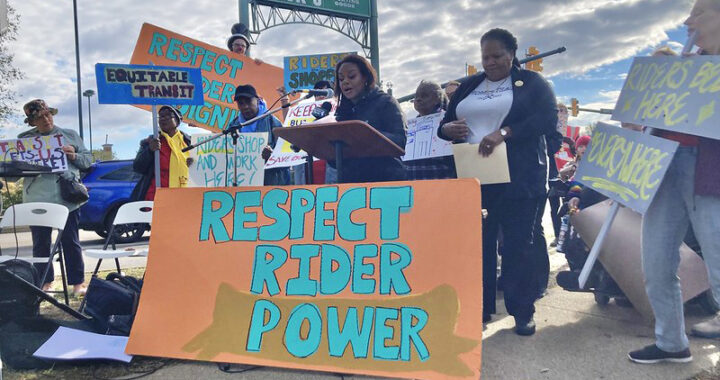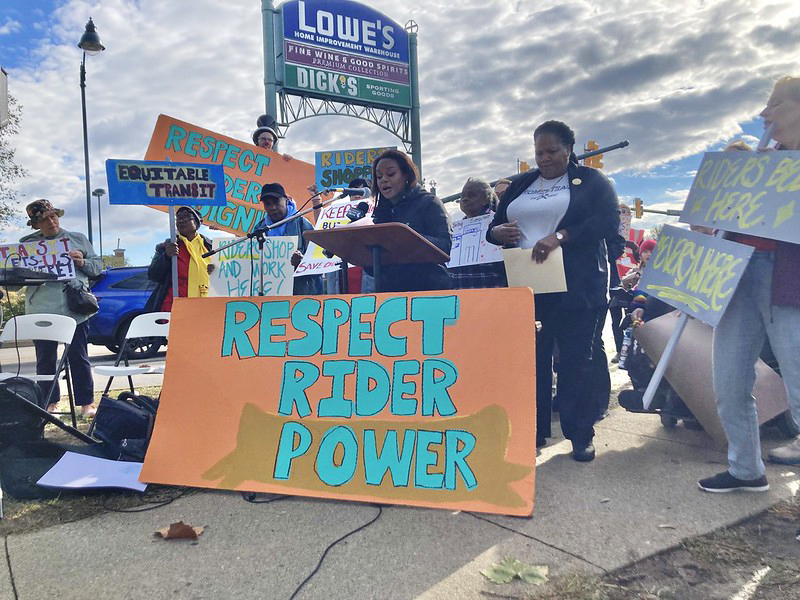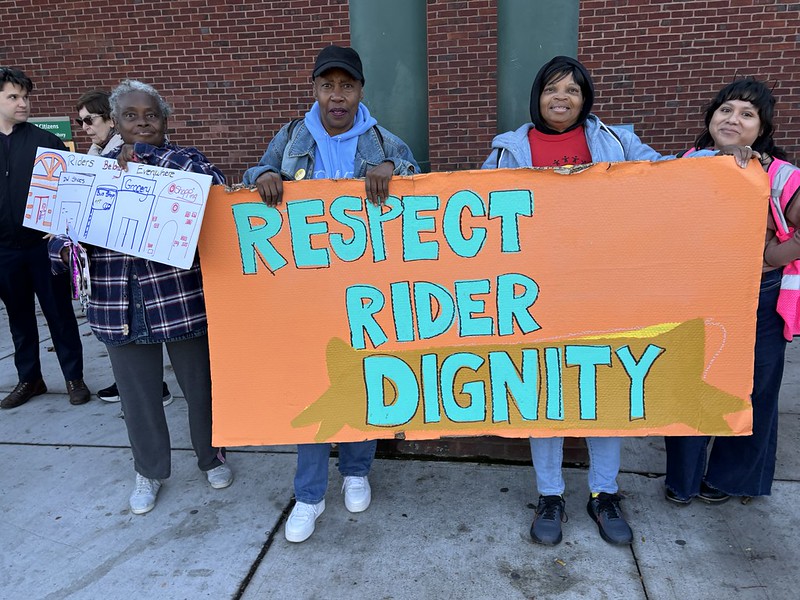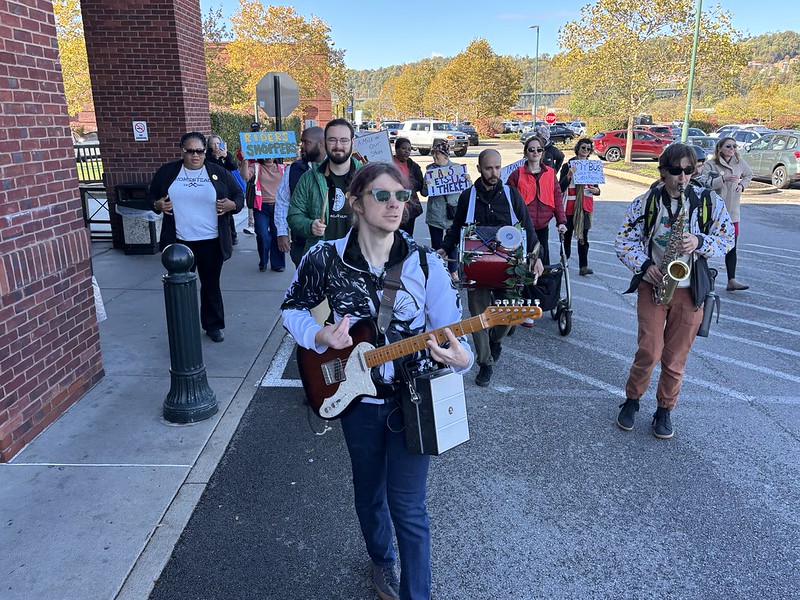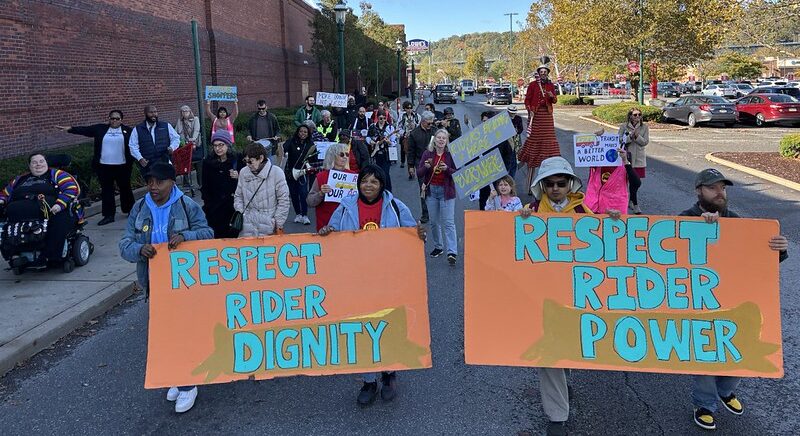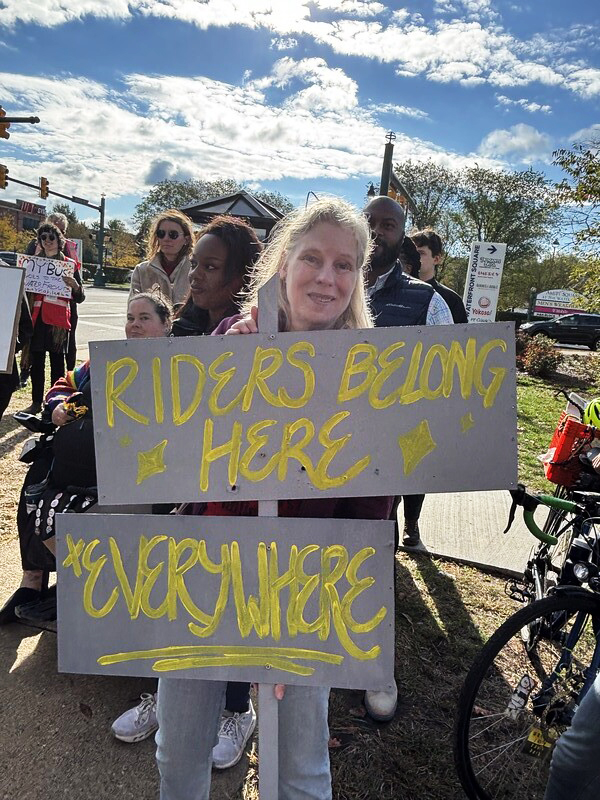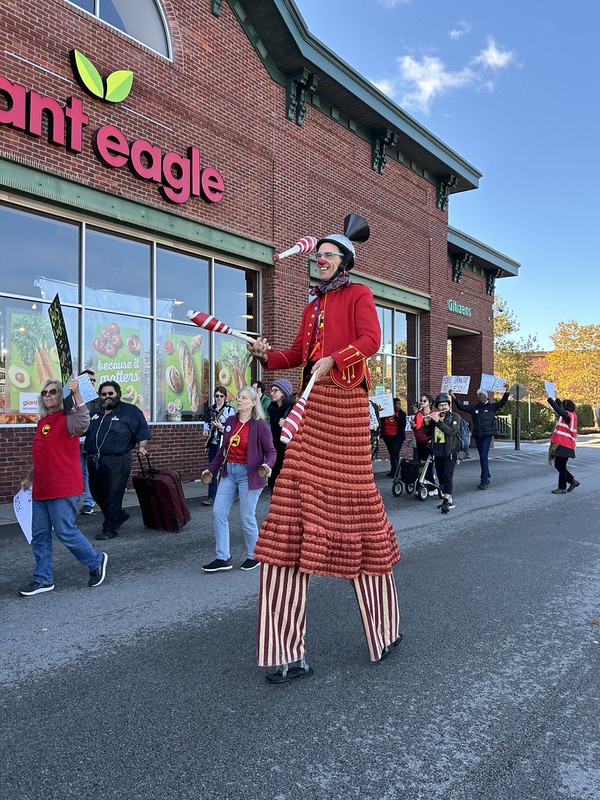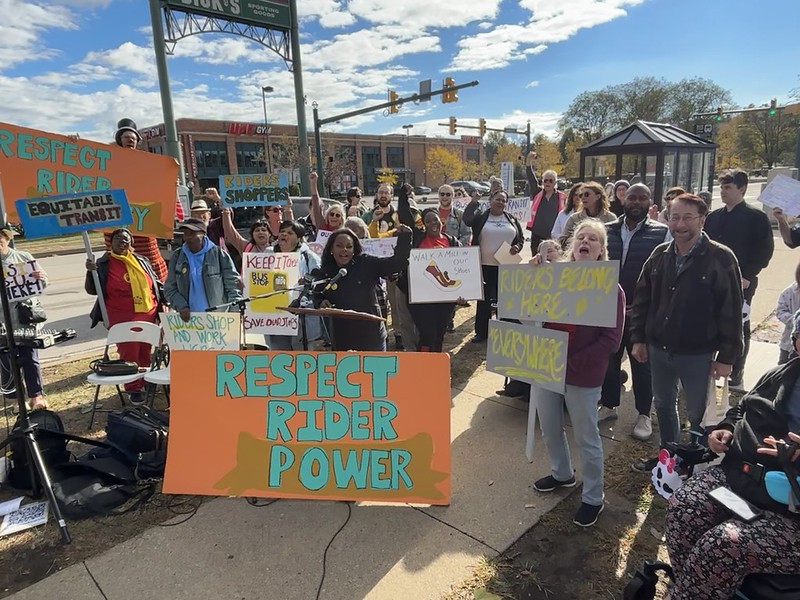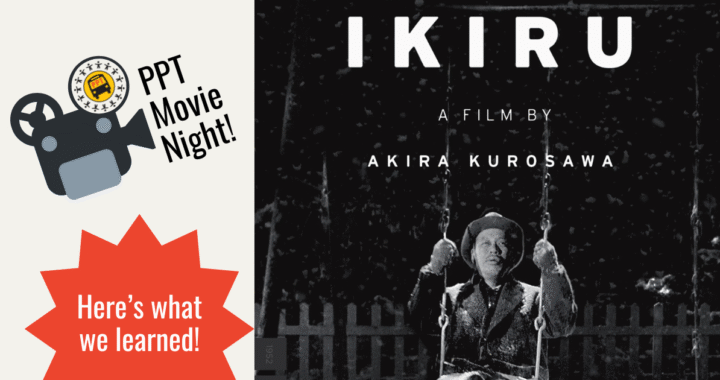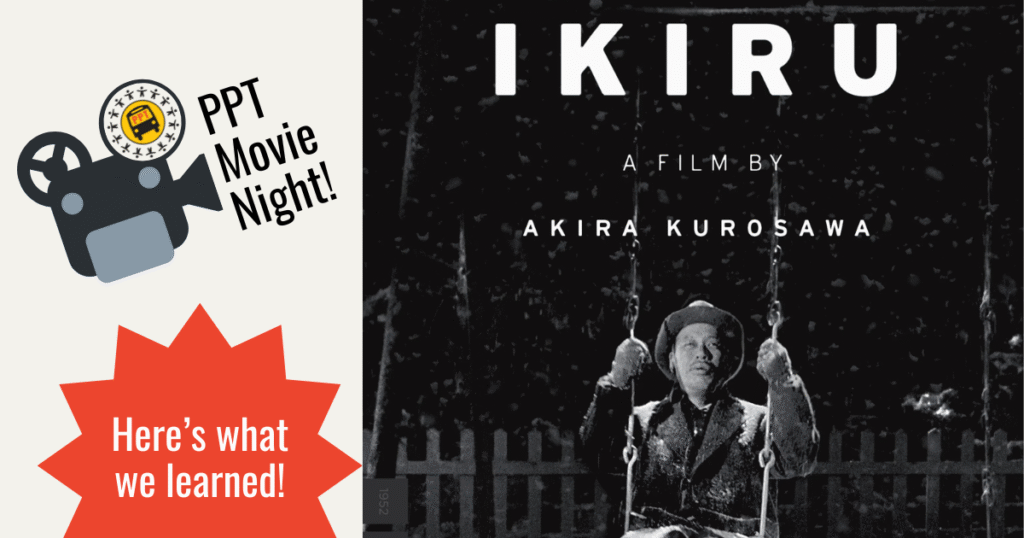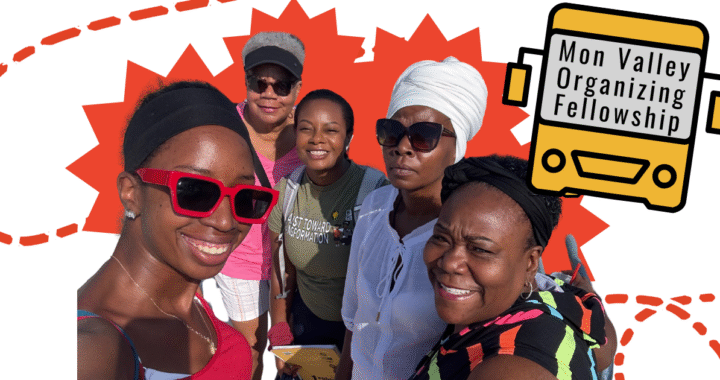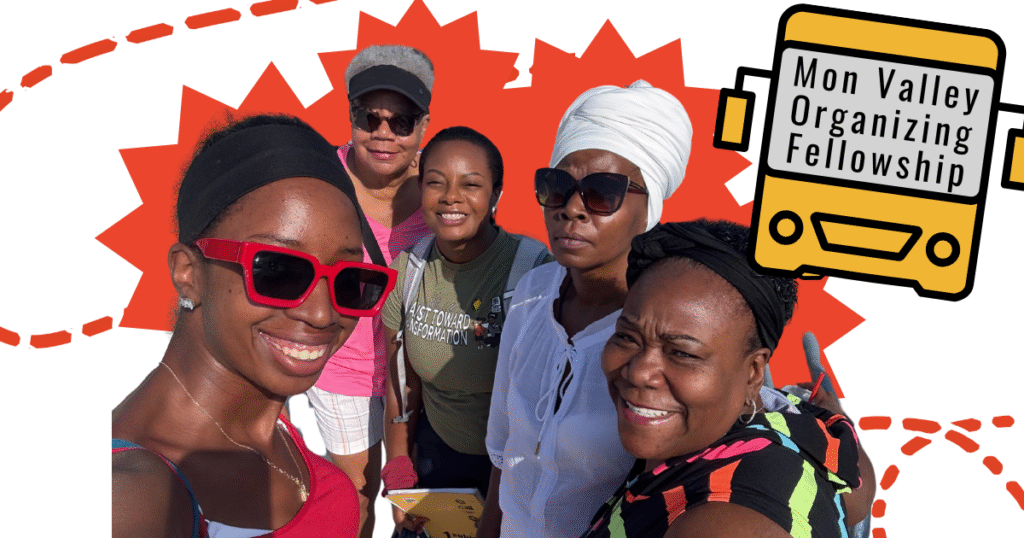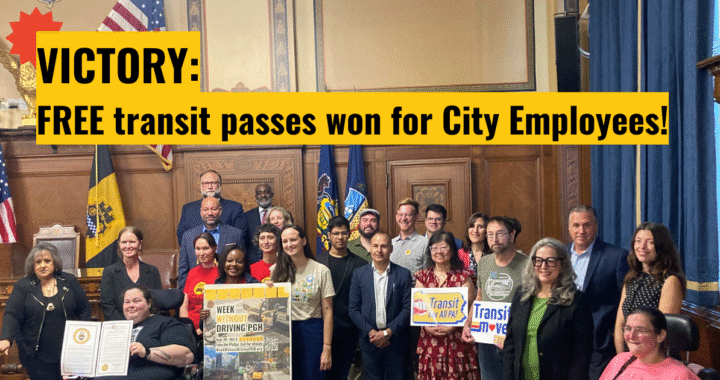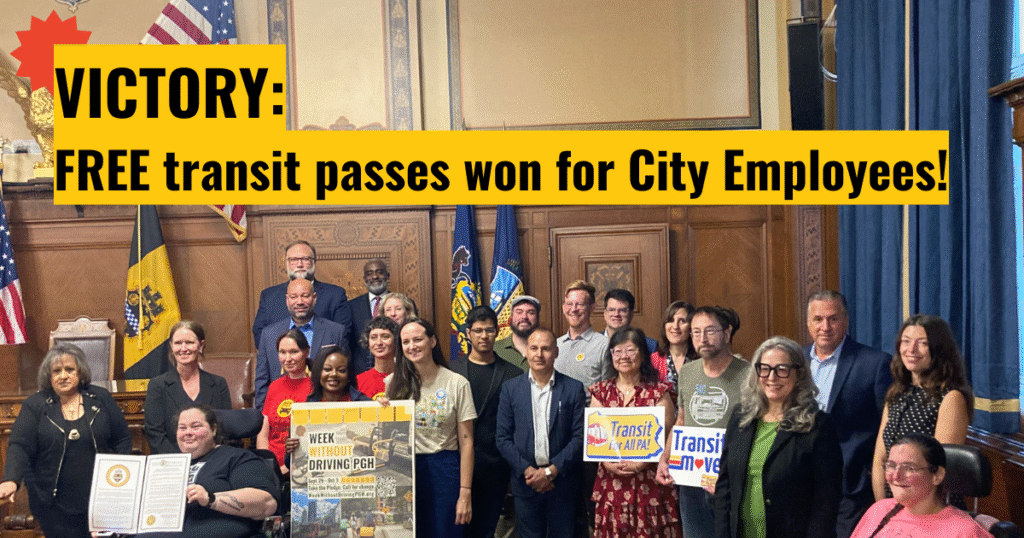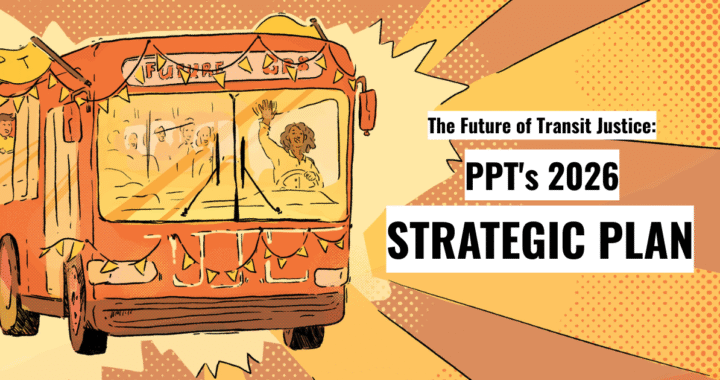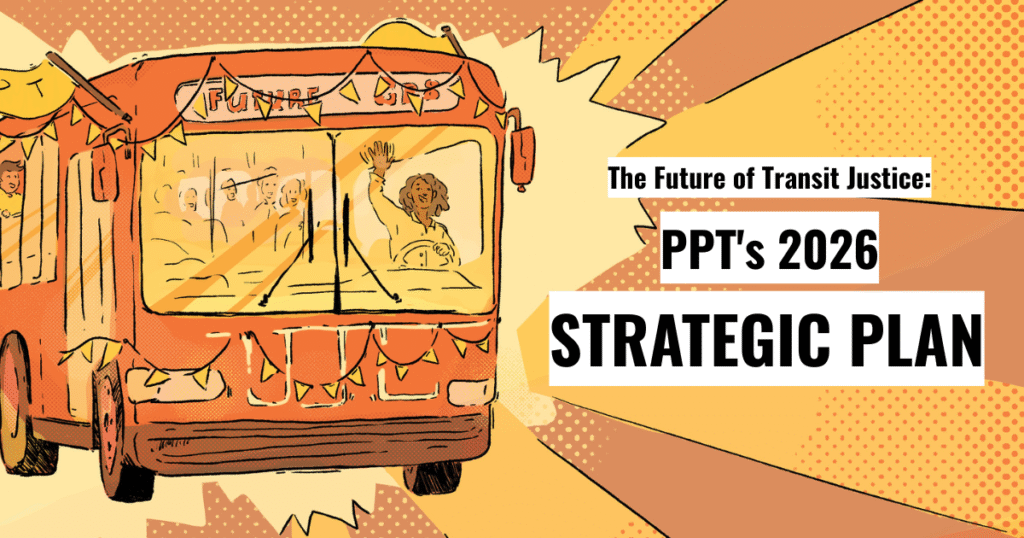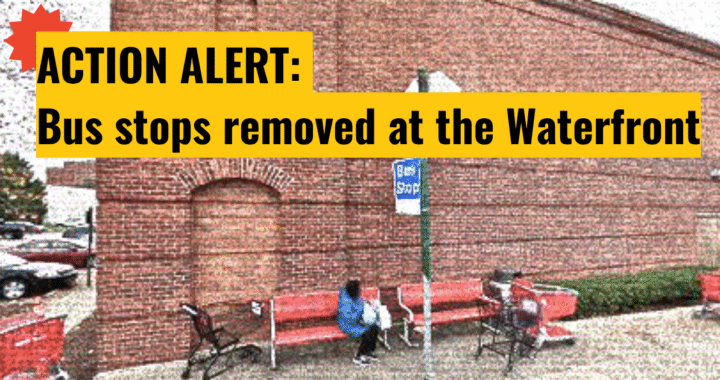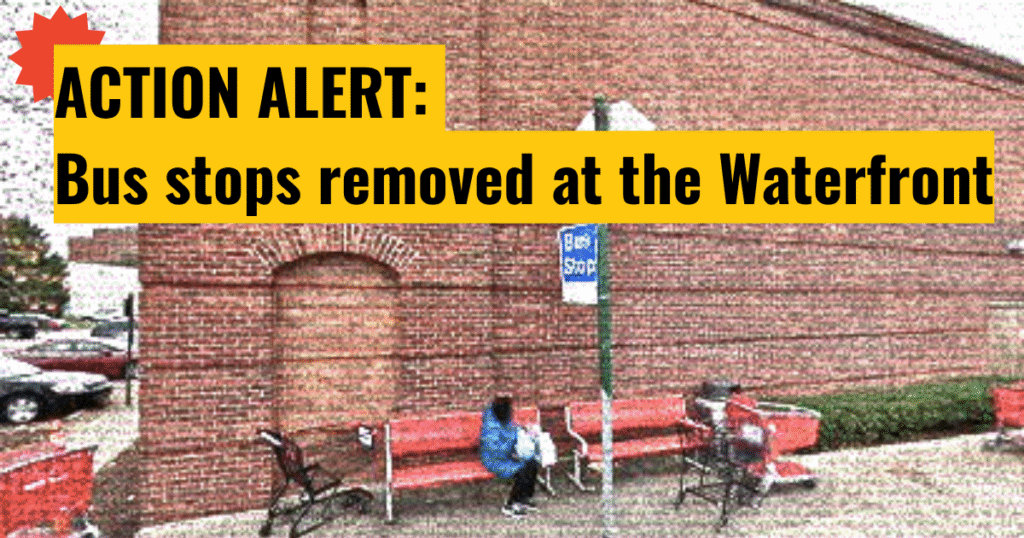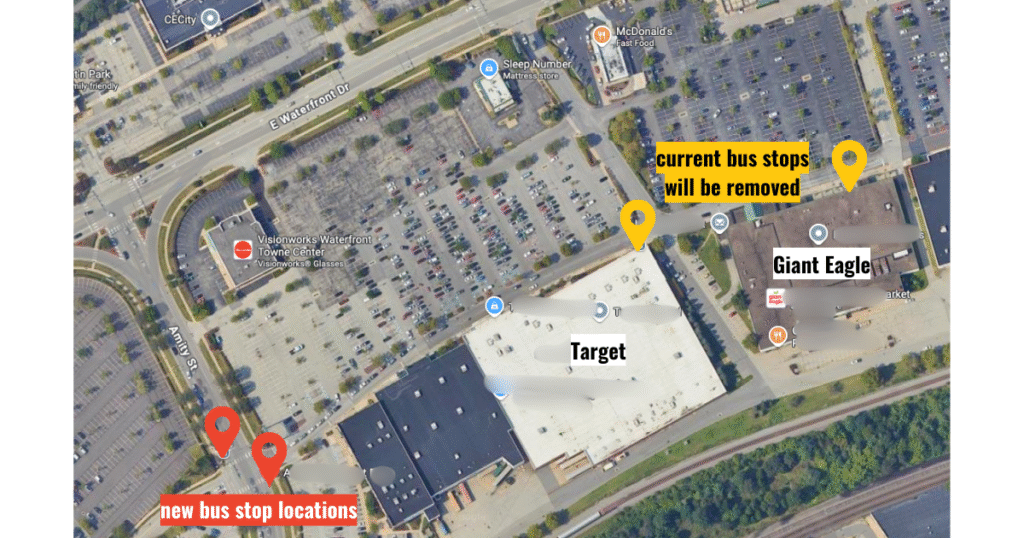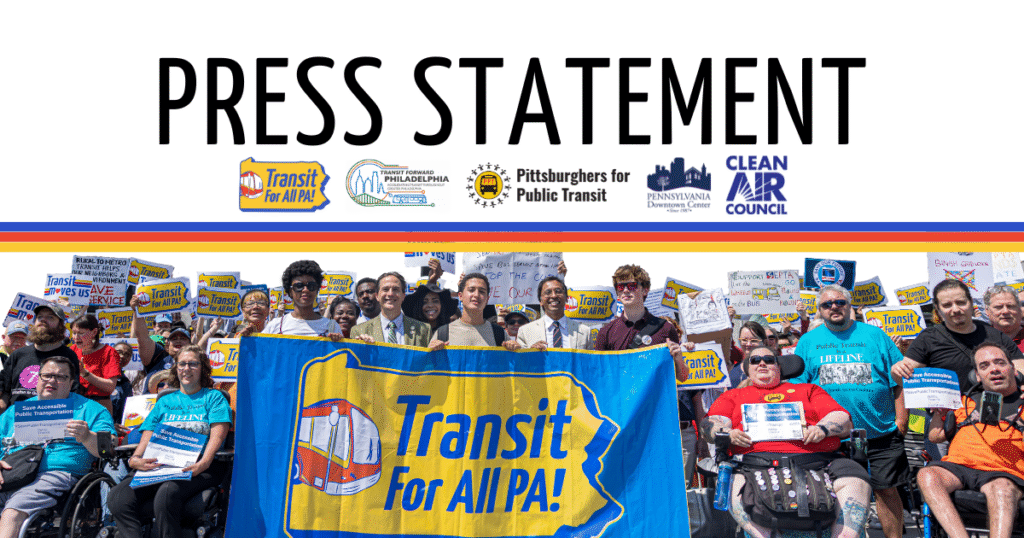
Transit for All PA Coalition Denounces State Budget that Fails to Address Mobility Needs for Pennsylvania Residents
Today transit riders, workers and advocates denounce the legislature’s abject failure to raise new revenue and pass a budget to meet the mobility needs of communities across all 67 counties in the Commonwealth. No budget is complete without addressing freedom of mobility, particularly for our older adults, people with disabilities and other vulnerable populations. Instead, this budget deal increases transportation spending by more than $100 million, none of which will be allocated towards public transit: this is an insult to the more than a million Pennsylvanians who take some form of transit to go to work, school, and medical appointments every day.
Confronted with the catastrophic costs of transit funding inaction on the Philadelphia and Pittsburgh area transit systems, the Governor, Democratic and Republican leaders in the House and Senate had all agreed that public transit funding was a top priority in this year’s state budget negotiations. The Pennsylvania House passed five bipartisan bills that would have made meaningful progress towards funding transit. Instead, Senate Republican leadership derailed these bipartisan efforts, and SEPTA and Pittsburgh Regional Transit were forced to use their limited capital resources to fund transit operations, which delays critical accessibility and safety improvements. Almost immediately, SEPTA faced the consequences of this decision: the Federal Transportation Administration declared SEPTA’s 50-year-old Regional Rail cars an imminent fire hazard. And while legislators were dithering even on this inadequate action, 800,000 transit riders in the Philly area had to weather a month of service cuts and chaotic commutes.
The forced transfer of capital funds to operations also did not address the mobility crisis facing smaller communities across the state. Within the next 18 months, the already austere transit system budgets in the Lehigh Valley, Lancaster, Westmoreland County, State College and more will hit their fiscal cliffs and begin cuts, harming Pennsylvania’s workers and vulnerable populations. Pennsylvania’s legislature and Governor have also entirely ignored the crisis facing our statewide shared-ride services, serving disabled and elderly populations in our most rural communities; in 2021, shared-ride programs operated at a $60 million loss in the 2020-21 fiscal year, the most recent year PennDOT’s report on the programs looked at. Costs have increased even as federal subsidies have waned, which means significant service cuts and fare increases are imminent for those with no other transportation options.
The Transit for All PA coalition has grown exponentially since the beginning of this year; we have built a movement of over 45,000 transit advocates who hail from all 253 legislative districts in Pennsylvania. We held more than 175 rallies, canvass events, and public meetings across the Commonwealth in the last 10 months, culminating in a 350 person rally and transit advocacy day in Harrisburg in June. And our coalition has proposed a commonsense transit funding solution – now the Transit for All PA legislative package championed by Senators Nikil Saval and Lindsey Williams, Representatives Jessica Benham and Aerion Abney (HB1523, HB1524, SB795, SB796) – that would raise sufficient, dedicated revenue to restore and expand mobility options for every community in Pennsylvania.
The Pennsylvania budget has passed 135 days late; there are now only 230 days until our next state budget is due. Over the next 7 months, Transit for All PA will amplify the voices of transit riders across our Commonwealth in support of sustainable, expanded transit funding. The coalition’s message: our legislators must get back to their jobs so that PA workers can get to ours. Moreover, in 357 days, many of the leaders who negotiated today’s budget will be on the ballot, including Governor Shapiro. We intend to educate transit riders to hold the Governor and legislators accountable in their roles and at the ballot box, as we continue to work towards passing a budget that will finally move all Pennsylvanians.
#######
